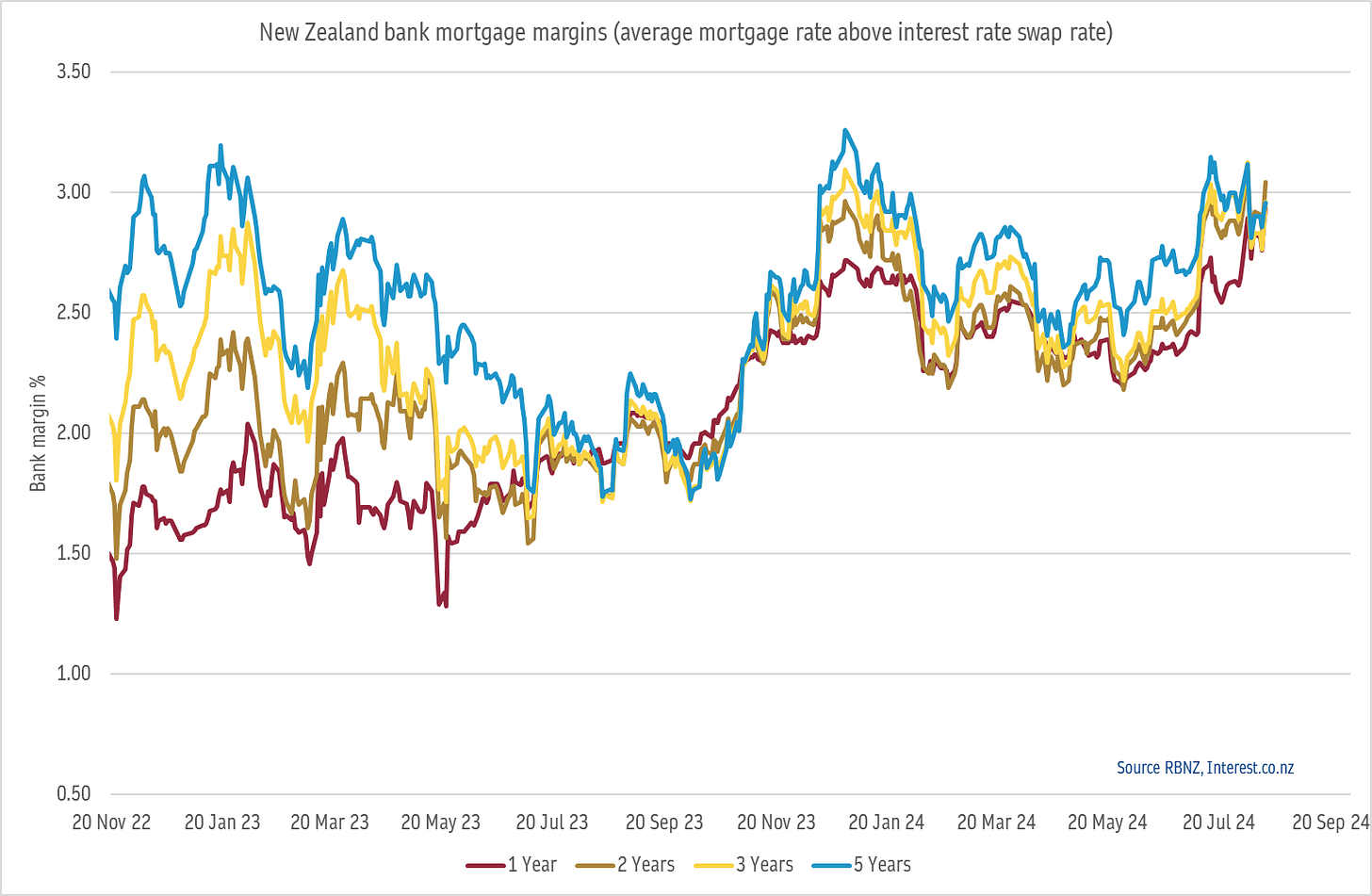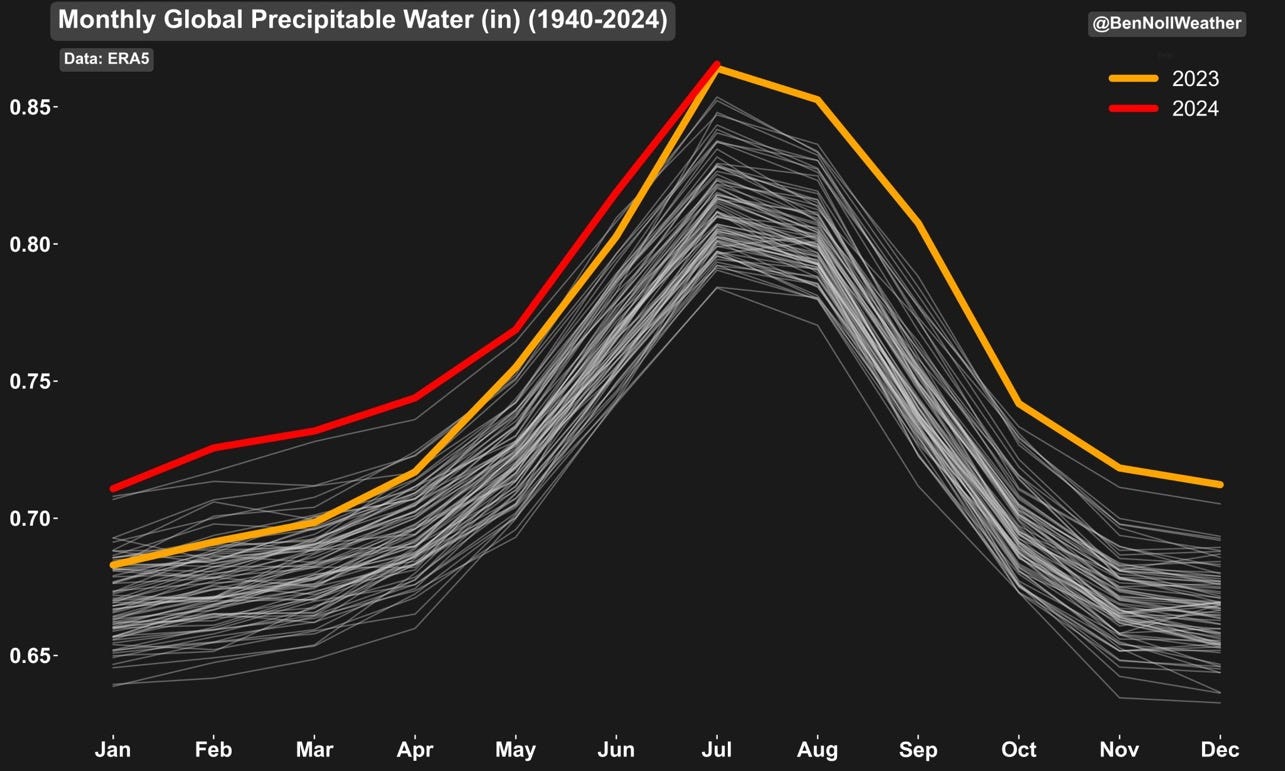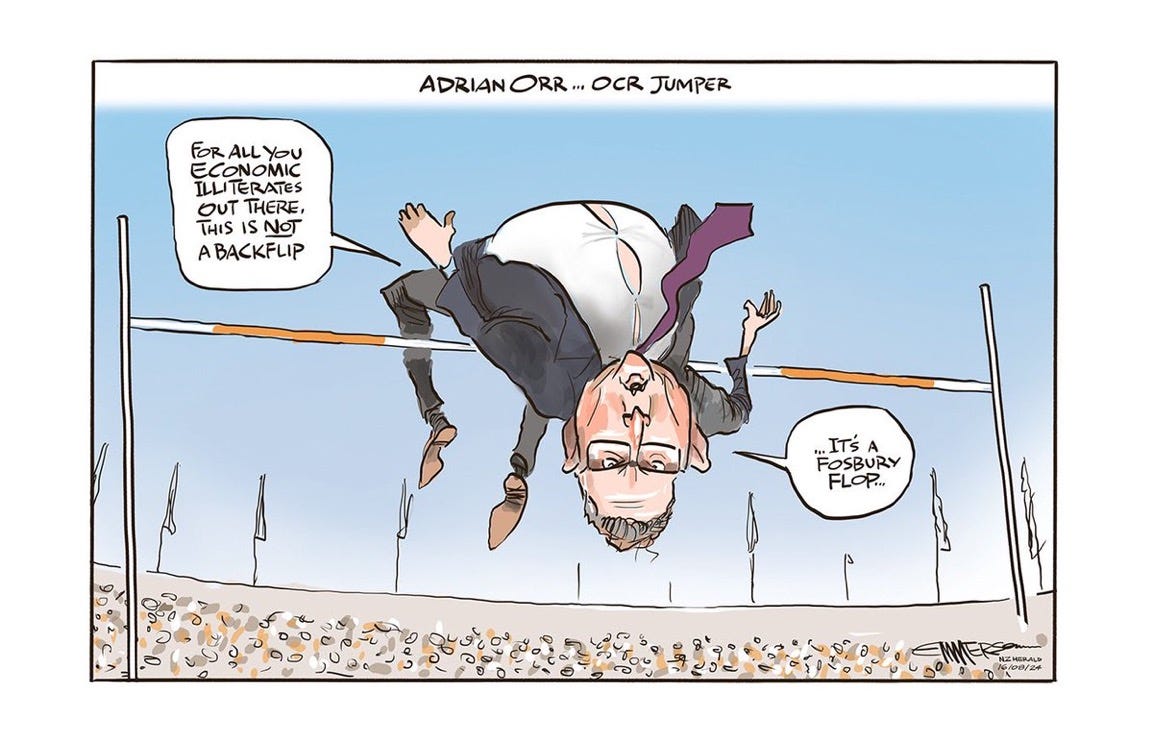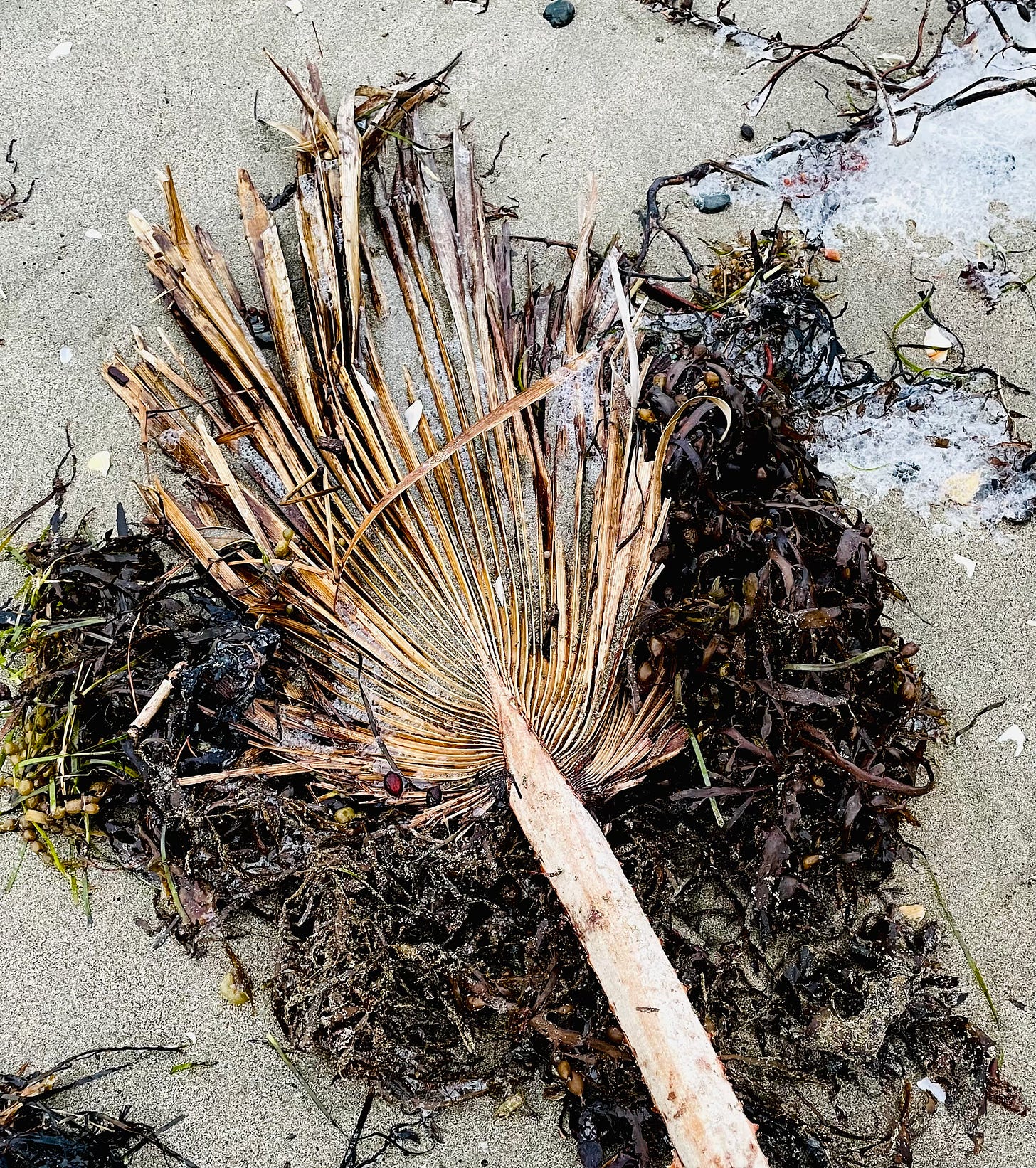
Mōrena. Here’s my top six things to note in Aotearoa’s political economy around housing, climate and poverty on Monday, August 19:
1. When the myopia of cutting now is more expensive
How Oranga Tamariki’s night of the long knives is counter-productive
The last week has been dominated by Oranga Tamariki contractors telling media about how they were being told without warning or reason that their funding was being cut, often with hours notice and well after the expiry of previous contracts.
Children’s Minister Karen Chhour lashed back at them on Friday, describing them as ‘disgruntled’ providers, many of whom had built up surpluses from past funding. In business, that would be described as a profit. No Early Childhood Education or aged care providers would have their funding cut because they made a profit.
The reckless way the funding was cut seems counter-productive, at best, given the long-term costs of having to put kids in state care if these privately run social service providers shut down. Here’s an examples va RNZ’s Maia Ingoe yesterday (bolding mine):
E Tipu E Rea, a Ngāti Pāoa whānau services provider, supports parents as young as 16 and their tamariki. Chief executive Zoe Whitika-Hawke said the group's work was critical as it prevented the need for Oranga Tamariki uplifts.
"We work to support their needs so that they can be the best parents they possibly can be, and there's no threat of their baby being uplifted. House them, make sure they're on the way to getting jobs, making sure their mental health is fine to be able to think of their future and their baby's hauora, so they don't have to end up with Oranga Tamariki intervention.
"We think about it in return on investment framework, which the government's really keen on. We actually save them money, because stare care is expensive."
This is a social service provider using the Government’s social investment approach. Was any analysis done on the ‘investment returns’ and opportunity costs of these cuts?
2. Turning up the burn in our churn and burn economy
Govt expands RSE scheme, cuts wages and increases worker costs
Last week, the Government increased the size of the Recognised Seasonal Employer (RSE) scheme for temporary foreign fruitpickers and cut wages by 10% to minimum wage for workers in their first three years in the scheme. It also allowed orchardists and contractors to increase accommodation costs for workers by 15%.
The scheme is a key part of our ‘churn and burn’ economy that encourages employers to use low-paid temporary migrants to expand their businesses, and avoid having to invest in technology to improve productivity. Spare cash can then be best used to buy more land, leverage it up, and make tax-free capital gain.
Here’s outgoing EEO Commissioner Saunoamaali’i Dr Karanina Sumeo, saying she was concerned about the changes:
“We want to ensure workers are treated fairly so I am concerned to see that the requirement to pay above minimum wage is only for experienced workers, protections for minimum hours of work have been reduced, and a pause on charging accommodation costs to workers has been lifted.
The Commission reviewed the RSE scheme in 2022 and found human rights issues affecting these workers including insanitary and cramped living conditions, unfair deductions from their wages, and poor access to health care.
“In October 2023 the Ministry of Business Innovation and Employment (MBIE) undertook their own policy review which made strong recommendations to protect the human rights of RSE workers including increased pastoral care, standardising wage deductions, and increasing accommodation standards.
“It is concerning to see an increase in the number of workers who can come to Aotearoa New Zealand when these basic human rights protections have not been implemented.”
3. Solutions: ‘Money too tight to fix black mould’
Again, the myopia of cutting funding on health and housing spending is on display in this piece last night from RNZ’s Phil Pennington, quoting Associate Defence Minister Chris Penk as saying the Government couldn’t afford to fix the mouldy houses that most defence staff at Linton report having to live in.
Penk told RNZ the government was exploring options. However, "we are operating in a fiscally constrained environment and the level of investment required is significant", he added.
Perhaps a more whole-of-government approach to analysing the solution might find the black mould costs the Government more in the long run through visits to A&E by children and their families living in these homes, and worse.
4. Quote of the day
Ready. Fire. Cut.
“We've got over 90 years of institutional knowledge between the counsellors and the social workers and community resource workers, we're really, really good at what we do. There's a loss of institutional knowledge across the sector.
“Where are these women going to go? It's going to put massive pressure on other community agencies and government agencies.” North Shore Women's Centre GM Tracey Swanberg via RNZ after Oranga Tamariki stopped its funding in June. It had provided about 30% of the centre’s funding.
5. Chart of the day
Worth asking for a special deal on a 1 year fixed rate

6. Climate graphic/chart/pics of the day
It seems awfully wet lately

When dark blue means very, very wet

Here’s NIWA Climate Scientist Ben Noll with another angle on climate change:
“About 70% of the planet experienced above normal atmospheric moisture during July 2024. This was associated with flooding in Texas, Vermont, parts of Mexico, Japan, Taiwan, Philippines, North Korea, China, India, Nepal, Pakistan, and Sudan. The streak of record moist months continued even as La Niña's cooler water built in the Pacific.
“This moistening trend is just as important as the warming trend as it relates to the potential increase in flood frequency and/or intensity into the future. Events like Debby contribute to this trend.In my opinion, this moistening trend is just as important as the warming trend as it relates to the potential increase in flood frequency and/or intensity into the future.
“The globe has now set atmospheric moisture records for 13 consecutive months, with the streak starting in July 2023. This has influenced an increase upper decile (top 10%) rainfall events over the last year. The moistening trend is indeed having an impact on the weather that we are experiencing.” Ben Noll via X
The best of the rest
Top six scoops and deep dives for August 19
Infrastructure deep dive: Learning on the job: What the PM will take away from a day in Sydney RNZ’s Lillian Hanley
Health scoop: No new mental health beds since new government took office. Sunday Star Times-$$$’s Amelia Wade
Health deep dive: Telehealth a ‘fantastic tool’, but not a solution for struggling GPs The Post-$$$’s Mariné Lourens
Aviation scoop: Whistleblowers warn CAA’s new approach could lead to more aviation accidents NZ Herald’s Michael Morrah
Housing news: ‘It is fraud’: Students kicked out after spike in out-of-zone parents sending kids to school NZ Herald-$$$’s Cherie Howie
Climate scoop: Government told to reduce household gas usage to save industry NZ Herald’s Thomas Coughlan
The Kākā’s Journal of Record for August 19
Poverty: The Human Rights Commission warned that the Accredited Employer Work Visa (AEWV) scheme may be enabling human trafficking and systemic migrant exploitation. A Commission review from late 2022 found many migrants had paid thousands for non-existent or short-lasting jobs. It recommended employers be required to provide settlement support for migrants, and that visas should not be tied to a specific employer. RNZ, NZ Herald
Poverty: Kaihautū Tika Hauātanga Disability Rights Commissioner Prudence Walker said the Government is scaling back Whaikaha, the Ministry for Disabled People before giving it the chance to demonstrate success. She added that the Ministry of Social Development, which will take back responsibility for disability support services, isn't specifically designed to meet the needs of disabled people.
Te Tiriti: The Waitangi Tribunal released a report characterising the Treaty Principles Bill as part of an "alarming pattern" of the Crown using parliamentary sovereignty against Māori. It warned that the Bill would "limit Māori rights" and "access to justice" by reducing the constitutional status of Te Tiriti, and called for it to be abandoned. RNZ
Corruption: The Helen Clark Foundation released a report warning that NZ is "slipping" on international measures of corruption, with economic inequality increasing political access for wealthy party donors. It recommended that NZ regulate lobbying and implement various measures to increase transparency around political donations. RNZ, 1News, NZ Herald
Transport: Transport Minister Simeon Brown announced a new $1.3 billion road policing programme to increase roadside alcohol and drug testing. The programme will up the target for breath tests from 3 to 3.3 million per year, with 65% of tests to be undertaken during high risk times. NZ Herald, Stuff
Human Rights: Justice Minister Paul Goldsmith appointed Dr Stephen Rainbow as the new Chief Human Rights Commissioner, Dr Melissa Derby as the new Race Relations Commissioner, and Dr Gail Pacheco as the next Equal Employment Opportunities Commissioner. Rainbow formerly chaired the LGBT phone support service OutLine and has faced criticism over allegedly transphobic and pro-Israel Facebook comments. RNZ, NZ Herald
Finally, some fun things
Cartoon of the day: Hamish Orr

Timeline-cleansing nature pic
After the storm
Mā te wa
Bernard















Cutting funds now, but increasing costs later